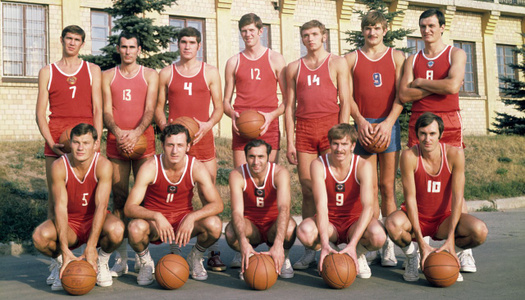
Miracle on Maple 1972 basketball Olympic champions and their relatives weigh in on a new blockbuster film that dramatizes the Soviet Union’s upset victory over the U.S.A.
Мы говорим как есть не только про политику. Скачайте приложение.
In late December 2017, the blockbuster sports drama “Going Vertical” hit Russian movie theaters. Based on the Soviet Union’s surprise victory over the supposedly unbeatable American team at the 1972 Munich Summer Games, the movie earned a whopping 1.4 billion rubles ($21 million) in its opening two weeks, surpassing a similar Russian sports movie from 2013 about hockey player Valery Kharlamov, ”Legend № 17,” which earned 922 million rubles. “Going Vertical” has been a smashing success at the box office, but not everyone embraces the film’s creative retelling of actual events. Two of the team members’ widows are even suing the production studio, arguing that the movie uses their life stories without permission. To learn more about their case, Meduza spoke to Alexandra Ovchinnikova (the widow of Alexander Belov, who scored the game-winning shot in 1972 and died at 26 of cardiac sarcoma) and Evgeniya Kondrashina (who was married to Vladimir Kondrashin, the Olympic team’s coach, who lived until 1999). We also talked to several of the team’s surviving players, who have embraced the film.
Alexandra Ovchinnikova
Soviet women’s basketball competitor and widow of 1972 Soviet Olympic champion Alexander Belov
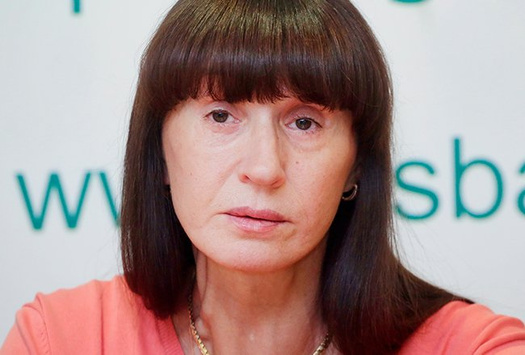
There’s not an ounce of truth in this movie, except for [the scenes in] Munich and the three seconds were our team won the game. Everything else is fiction. I strongly dislike how Sasha Belov is depicted in this film. He comes off as this fatally ill man who sacrifices everything for the game, but actually Sasha had great zest for life and he really wanted a long life in sports.
Even my daughter, who only knows Sasha from the stories I’ve told her, said to me after watching the movie, “Mom, but Sasha wasn’t like that. Why did they make him so ugly and sickly?” His character is ailing throughout the whole movie, collapsing right on the court. People like that can’t be in sports. I played on the national team myself, and we were sent for medical examinations the moment we showed up for training. We couldn’t train or compete until the doctors had a look at us. But in this film, not only do they recruit this sickly man, but they send him off to the Olympic Games.
I didn’t want the filmmakers to use my name or Sasha’s name, and I didn’t want anyone to invade our privacy. The main thing here is that none of this happened in 1972. Sasha and I didn’t meet until much later. Sasha didn’t have a fiancé that year. Women’s basketball still didn’t even exist in the Olympics.
They showed us a script and said that the movie was already filming and they couldn’t change anything. We only managed to get them to change just a few things about Kondrashin. In the first draft, his character illegally used foreign currency to pay for his son’s medical treatment. They have a scene where Sasha starts a pick-up game of basketball with some random Americans. I was categorically against this. Sasha was a professional. He wouldn’t have done anything like that the day before competing. And if he was supposedly already sick, how could he have allowed himself to play in such conditions?
The game itself in 1972 wasn’t anything like in the movie, which is nothing but flashy scenes. For example, back then it was forbidden to score from above, and the nets and baskets weren’t made so players could hang on them. But in the film we see a player fly through the air and score from above. For professionals in this sport, there’s not really any basketball in this film. You can’t see whole picture. It’s just disconnected moments and glimpses: legs, arms, the ball.
The director tried to convince us that the film was beautiful and that everyone would see it and enjoy it. They managed to persuade [Ivan] Edeshko, but he’s barely in the movie, and his family isn’t depicted at all. If they’d made up a bunch of stuff about his loved ones, maybe then he’d start arguing with them.
I know that people like the movie — that they’re crying in the aisles. The actors are fantastic: Mashkov, Smolyakov, Basharov. And it’s fun watching their depiction of the game, but the events are still all distorted. Mashkov is good, but he doesn’t pull off Vladimir Kondrashin. And Sasha was a blue-eyed blonde. They could have at least dyed the actor’s hair.
Let Mikhalkov [Nikita Mikhalkov, who produced the film] make works of fiction about his own family, about how his relatives were fatally ill, drank, and slept around. I know that they’re now making a movie about [Soviet soccer player] Lev Yashin, and they’re consulting with his widow on every issue, they’ve reworked the script several times, and they had her pick the actor from 30 candidates. That’s how film studios should work with families.
Ivan Edeshko
1972 Soviet Olympic champion whose inbound pass to Alexander Belov helped beat the Americans
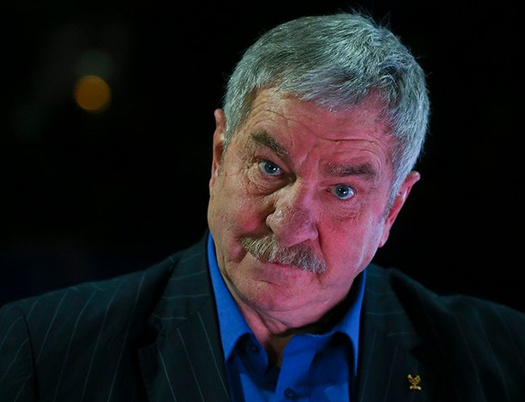
I started watching “Going Vertical” in pieces, before it came out in theaters. The producers invited me, as a basketball professional, to get to know their team, see the script, and work on it with them, sharing my experience with basketball and basketball life in the 1970s. To be honest, I didn’t understand at first what the movie would be about, and later I realized that it was a feature film about the psychology of the players and the coaches and about life in the 1970s. They captured everything perfectly.
From the very opening scene of the final release, I knew the picture would be a blockbuster that would light up the film world. At the time, I couldn’t imagine that anyone would ever object to anything in the movie.
Once I’d seen the entire film, my first thought was about the participants in these events who are no longer with us, and about the athletes’ fans, family, friends, and descendants who — thanks to this movie — can relive the pride felt for this incredible victory, for their families, and for their homeland.
It’s scarcely possible to convey the emotions we felt. At the time, we ourselves hardly understood what we’d accomplished. It was only months later, once we’d already returned to the USSR, that we understood that we’d achieved something great: shocking the world by defeating America.
The film, of course, has its inaccuracies, but I don’t think they distort the events depicted. Consider one of the team’s players, for example: Modestas Paulauskas. Many are saying that he’s portrayed poorly in the movie — that the actor playing him [James Tratas, born in 1988] is a contemporary Lithuanian who doesn’t like Russians. But you’ve got to look at the root of this character, who eventually understands that his homeland is his mother and father and his friends, family, basketball, fishing, and Lithuania.
Of course, Sasha Belov wasn’t sick during the Olympics in Munich, as they show in the film. But his personality, his general attitude, his admirable acts, and his qualities as a basketball star are portrayed accurately. For some reason, there’s been some misunderstanding from his widow [Alexandra Ovchinnikova], who also didn’t like her portrayal in the film, even though Sasha looks better in the movie than he did in real life.
In the movie, our coach, Vladimir Kondrashin, is a great hero. He’s clever, he can read people, and he’s ready to give up everything for his loved ones. He’s a coach sent from God, especially when portrayed by Vladimir Mashkov. Even if Kondrashin might have objected to the depiction of Garanzhin (that’s the Soviet coach’s name in the movie), there’s no doubt that he would have recognized that this is a great film about life and basketball.
With this film, I got a look at a whole different walk of life, seeing how filmmakers and actors put together a movie, and I got to participate in this myself. I’m happy, but it upsets me that a lot of people just want to promote themselves using this great picture, while audiences are cheering and crying across the country.
Evgeniya Kondrashina
Widow of Vladimir Kondrashin, who coached the 1972 Soviet Olympic basketball champions
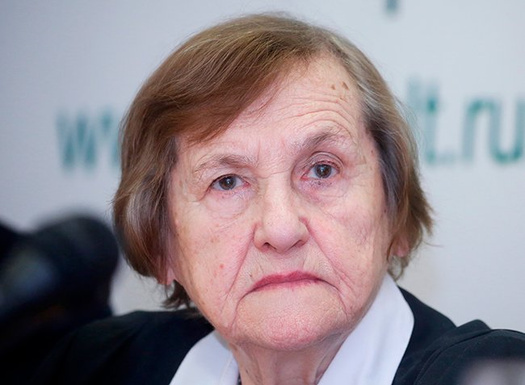
We were deeply offended [by the movie’s creators] because they never came to us before filming or asked if we wanted this movie in the first place. All they did was show us a completed script, which we disliked intensely. They’d written such nasty things that I actually fell ill after I read it. In the end, yes, they removed a few things. But they kept it so Sasha Belov was sick, even though this was the pinnacle of his sports career. It’s absolute blasphemy to depict a person as sick in his best years, knowing that a few years after these events he would die.
Mashkov does a good job as Vladimir [Kondrashin]. I love this actor, and I even enjoyed his performance. He didn’t really capture the character, of course, but only the people who knew [Kondrashin] closely would ever know.
I signed a document stating that I didn’t want our surname used in the film. I think my late husband would have done the same. Before he passed, he asked me: “Don’t write any books about me, and don’t let them make any films.” He had a premonition that they’d do something really wild, if they ever made a movie. Or maybe he realized that it wouldn’t be interesting if they just wrote the truth.
Kondrashin was very modest, and he didn’t like being praised. He didn’t even like talking about the 1972 Olympics. He would say that the team was actually winning throughout the game, but all anyone ever remembers are those final three seconds. He regretted that they weren’t able to win without those three seconds. With them, maybe there wouldn’t have been such interest, either.
I know audiences are enjoying the movie a lot, and I’m glad. Let people see it. I only wanted the filmmakers not to distort historical facts. They told us that nobody would come to see it, if they showed everything exactly how it really happened, but I think people still would have come. Write a screenplay that people will like, but don’t invent a bunch of nonsense.
Alzhan Zharmukhamedov
1972 Soviet Olympic champion
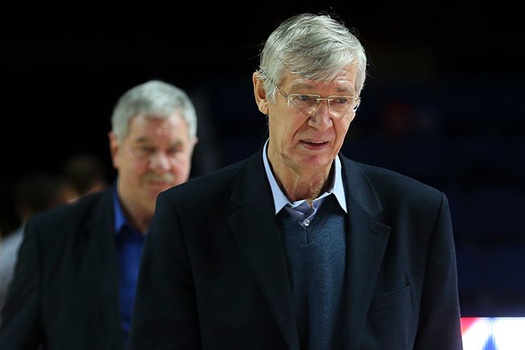
The excitement around this film is incredible. Even after our victory at the Olympics, 45 years ago, there wasn’t anything like this. On the whole, I think the film succeeded, although there’s a lot that’s made up. But the film is a work of art, after all, and the director has the right to invent some things in order to create something entertaining.
In the film, there’s a scene where I’m wearing glasses while playing, even though I didn’t get those until after the Olympics. But that stuff isn’t so important. The main thing is that they managed to convey the drama of the game’s final three seconds.
My wife and I attended the premiere. At one moment during the film, I turned from the screen and looked at her, and there were tears streaming down her cheeks. I asked her what was the matter, and she said it was as if she’d been transported 45 years into the past, to that night when she and the other players’ wives were calling each other and calling the television and radio stations to find out how the game ended. She seemed to be experiencing it all over again.
I saw how people left the theater looking excited and inspired, which means the film managed to reach their hearts. My wife wasn’t the only one in the audience who was crying. The film inspired pride in our country and for the guys who won that victory.
To be honest, we never played basketball with negroes. [In one of the film’s scenes, the team plays a pickup game against a group of black teenagers in New York City, losing a few cans of caviar in a bet.] But the film is accurate where they show the caviar: back then, Soviet athletes used to bring caviar and cameras abroad, to earn a little money. We only got $2.50 a day, and I wanted to get something for my wife and kids. I wanted to buy a stereo tape recorder.
In the film, Mashkov plays a tough, uncompromising coach. Kondrashin was a gentler man, but the actor perfectly captured his behavior during the game itself. What I disliked most was that all the players in the movie have the same names as us, the real players, but Kondrashin got a made-up name. It’s a shame that his name wasn’t used in the film. People should know about Vladimir Kondrashin.
Modestas Paulauskas
1972 Soviet Olympic champion
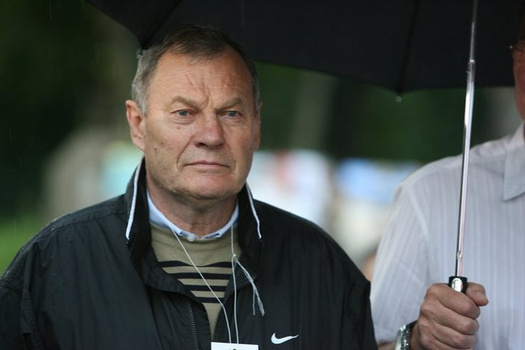
I was really excited to watch the film. I think it’s a wonderful picture. The audience in the movie theater (I saw it in Vilnius) couldn’t get enough, and half the crowd had tears in their eyes. If the filmmakers had decided to recreate everything with total accuracy, it would have ended up a very dry documentary.
The director and the producers came up with a great movie: they added a part about the love story between Sasha Belov and Ovchinnikova, about Kondrashin’s family, his wife and son. I really enjoyed the part filmed in Georgia about [Olympic team member] Mikhail Korkia.
The character based on me is slightly embellished, but I realize this was also in the interests of the film, to keep things lively for the two hours and 13 minutes.
I spent a whole day with the actor who portrayed me in the movie. I wanted him to understand my character, the general spirit of the team, and my friendship with [fellow team member] Sergey Belov. He did an excellent job. They distorted Sasha Belov’s story some, but they didn’t change anything really. Unfortunately, he did have a disease, but they decided to depict it differently. It would have been boring to watch him in the hospital. This way, we got to see him on the court and in his love life, and it only made the film more interesting.
In Soviet times, there were a lot of immigrants from the Baltic republics living in the Americas. And when I was there, a lot of them would want to meet with me and talk about Lithuania, about their homeland, and about our mutual friends. The scene where I supposedly wanted to stay in the West is invented, but this wasn’t a problem for the film. I was fine with it.
Update: On January 10, Anton Megerdichev, the director of “Going Vertical,” told the magazine RBC that he tried “not to offend or upset” anyone with his film. Megerdichev says he spoke to the widows several times before and after filming, and claims he thought they “had come to some kind of an agreement.”
Interviews by Sasha Sulim, translation by Kevin Rothrock
(1) The slam dunk
An important scoring move in contemporary basketball, the slam dunk was banned in the NCAA from 1967 until 1976. In the Soviet Union, slam dunks were considered disrespectful to opposing players. At the 2012 London Olympics, Liz Cambage of the Australian Opals became the first woman to dunk in the Olympics, scoring against Russia.